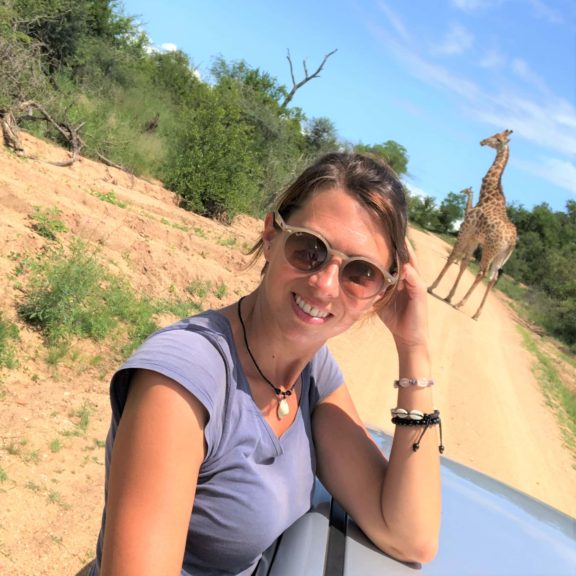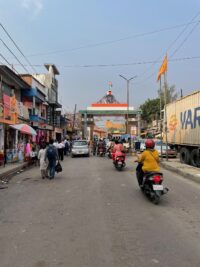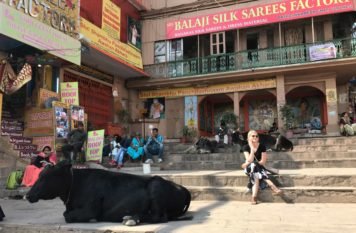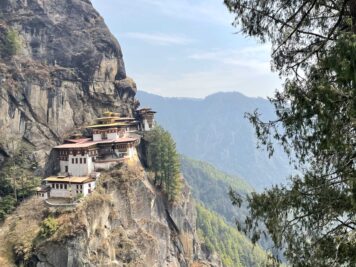Christmas miracles do happen. On Dec. 22 as we drifted down the Nile on a felucca (sailboat) we hadn’t gotten very far from Aswan when we saw our friend Ahmed running down the riverbank towards us shouting ‘Your visas are here!’. We scrambled off the boat and into a taxi and went over to the Sudanese embassy (anyone who has seen ‘Flight of the Conchords’ should recall Murray and the New Zealand embassy overtop of the Chinese restaurant. This is the same thing only with the added twist of a lot of men in traditional dress smoking and saying ‘salaam’).
We collected our passports with the new visa labels inside. We decided to continue our sailing trip, sleeping on the felucca as planned and leave for Sudan the next day.
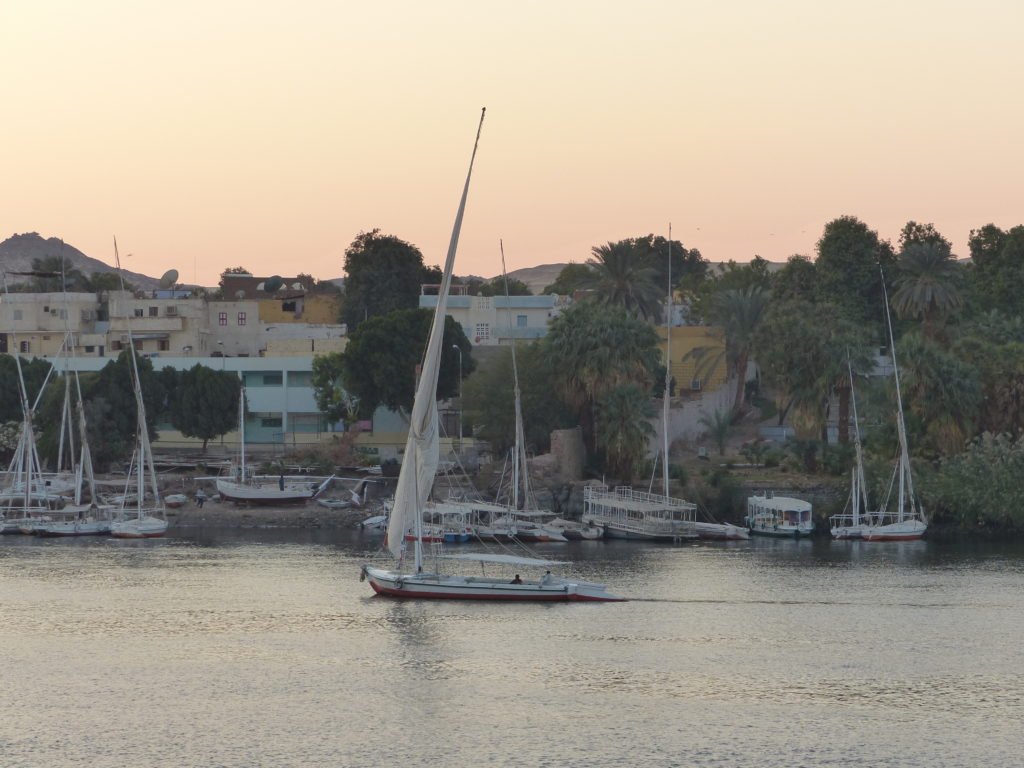
We’d been in Aswan for a week so we felt settled in. We had daily routines and favourite spots where we wanted to say goodbye. Like to the guys running this shop where we bought our water each day:

People have been really nice to us in Egypt, leaning over from the next table in a café to say Merry Christmas (it’s not a holiday here), or wishing us welcome and asking about our plans. On two separate occasions we’ve been taken out for fantastic dinners. And of course let’s not forget the laundryman who sent me a Facebook friend request even as he sorted through our dirty clothes on the counter. School kids love us and chase us around relentlessly, asking for photos.
Way back in Cairo, Oyv looked back over his shoulder at a crowd of kids lurching towards us, selfie sticks extended, and drew a striking comparison to The Walking Dead (this as we were actually running away from the herd).
Up at 3.30 am the next day, we took a bus headed for the border. We’d originally planned to take the once-weekly 24 hr long ferry across Lake Nasser but we’d missed it waiting for the visas. We’d heard that the ferry is a real disaster, which is why we were so looking forward to it. But there was a long day in store for us anyway.
We waited two hours past the planned ‘departure time’ while they loaded the bus. A crew of guys who seemed to be passengers packed the back third of the bus from floor to ceiling with cargo and luggage. Then they filled the overhead racks (mostly with flat-screen tvs) and then they packed the aisle too, so that to get on we had to climb over cardboard boxes and bags and a crate of oranges. I noticed one passenger bringing the muffler from his motorbike along.
When we arrived at the Egyptian side of the border, customs unloaded the bus completely:
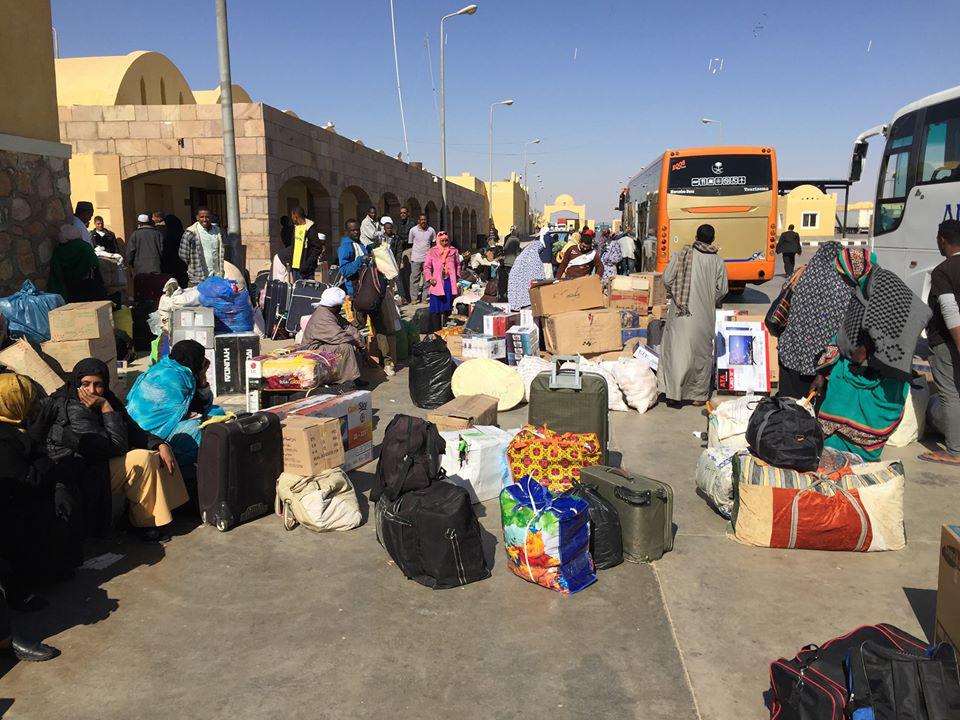
After xraying our bags and stamping our passports we waited around in the hot dusty sunshine while the driver and his friends repacked. Then we drove for ten minutes to the Sudanese side….where customs unpacked the bus all over again. The real downside here is that the Sudanese don’t have an xray machine, so they search all the bags one-by-one.
But we’d arrived!
It gets dark early, and so the bus stopped for the night in the frontier town Wadi Halfa. This is a dusty, windswept sandbox of a town. It felt remote and isolated and far away from everything and everyone, in the desert under the starry sky.
Here we began our rapid and immediate introduction to Sudan:
- Sleeping. Lokandas, the less-than-salubrious local hotels where all the rooms have at least 3 or 4 beds. You pay by the bed. So if you want your own room you might have to pay for all the beds (which luckily are very cheap and so they should be, since they are just metal frames with ropes stretched across, similar to sleeping on a lawnchair). A room generally costs around 5 USD, so no complaints here!
I won’t mention the toilets and showers. Or lack thereof. It’s often a BYOB setup that is, Bring Your Own Bedding….you should not Bring Beer, since alcohol is illegal in Sudan. - Eating. A big platter in the middle of the table, heaped with spicy tasty food. No individual plates or cutlery – everyone just dives in with a piece of bread, giving new meaning to the expression ‘sharing a meal’.
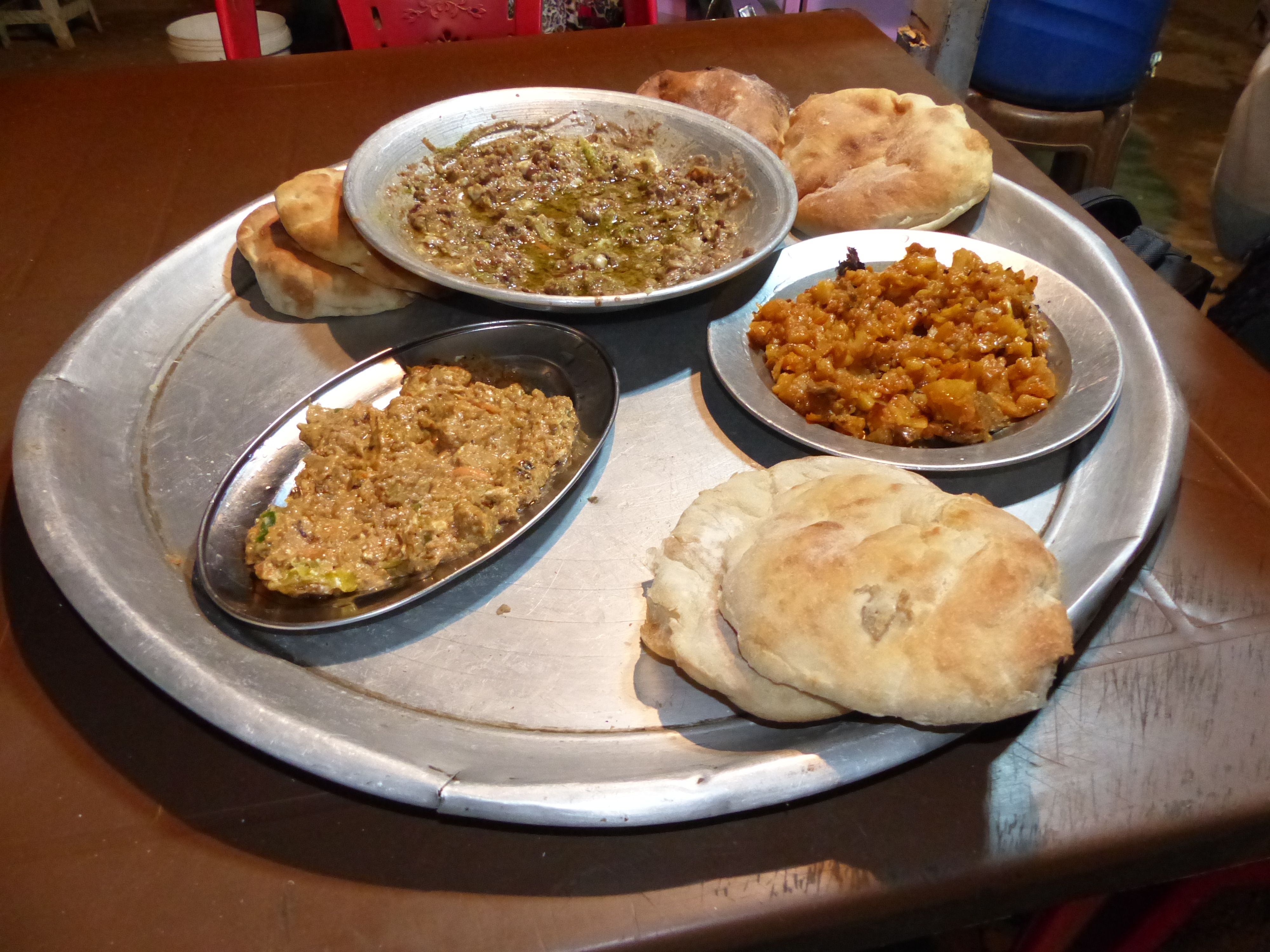
I like it, scooping up beans with a piece of bread or eating a fish fresh from the Nile and fried whole, with my hands.
Feel free to spill on the sand or concrete floor.
- Money. There are no ATMs here. We’ve brought more than all the money we’ll need in the form of 2000 USD cash split up in a couple of locations on us. Black market money changes who offer the best rates roam the streets with bags of cash and we’ll change to Sudanese pounds as we go.
Armed with this knowledge, we slept well at our lokanda and got up at 4 am to catch the bus to our first real destination. Sitting in the sandy open expanse where busses park in this desert outpost we watched the town wake up and come to life in the cold morning air. Tea ladies set up their stalls, stoking fires, boiling kettles and frying zalabias (delicious little doughnuts). Money changers mingled in the crowd and we swapped some Egyptian pounds out. Men drove past on two wheeled donkey carts piled high with onions, grass, tires and gravel. Kids ran around in the dusty streets between the low mud brick buildings. We drank sugary tea and waited for our bus….there’s no telling when it will leave but we knew it wouldn’t leave on time. And we thought, Hello Africa!!!
Read More
Check out the rest of my stories from the road, for more of our adventures (and misadventures) in Egypt and Sudan.
